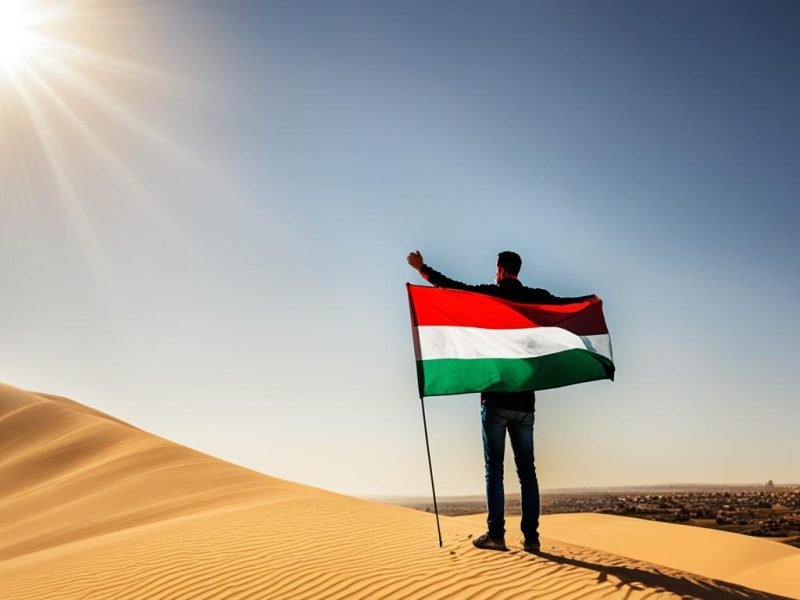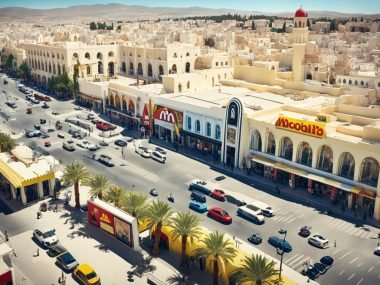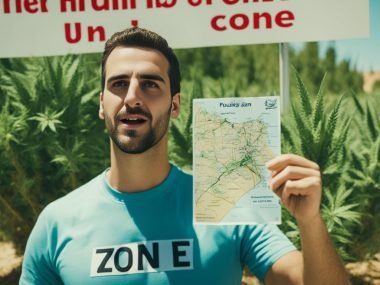In exploring Tunisia’s foreign policy, it’s clear they stand with Palestine. This bond has grown stronger over time. Despite turmoil in Tunisia, a united stance against Israeli actions in Gaza stands out.
The youth in Tunisia, despite domestic divisions, agree on opposing Israel. They push for laws to reduce Western influence. A change in NGO regulations may soon reflect this national sentiment.
Tunisia’s policy on Palestine is notable in the North African context. It shows the region’s politics and global stance. I’m eager to explore this alliance further, beyond just formal ties.
Key Takeaways
- Tunisia’s historical ties with Palestine are deeply rooted and continue to strongly influence their foreign policy decisions.
- Political turmoil within Tunisia has led to a rare consensus against Israeli militarism, uniting a wide array of Tunisian voices.
- A progressive Tunisian youth is central to driving the national dialogue and legislative action concerning the Palestinian cause.
- Conversations about NGO operations in Tunisia hint at a shift towards prioritizing national sentiment over international expectations.
- Tunisia’s stance serves as a bellwether for North African countries in their approach to foreign policy regarding Palestine.
Unveiling the Historical Bonds: Tunisia’s Affiliation with Palestine
Tunisia and Palestine share a strong bond of support and solidarity. Tunisia is a key player in North Africa, often voicing support for Palestine. This link is strengthened by historical events, affecting their political stances.
From PLO’s Shelter in the 1980s to Today’s Commitment
In the 1980s, Tunisia gave asylum to the PLO after they were forced out of Beirut. This act showed Tunisia’s strong support for Palestine. It began a long period of backing that continues today.
The Tunisian government still supports Palestine. This shows the lasting ties and shared political positions on the Palestinian conflict.
Alignment of Tunisia with UN Resolutions Supporting Palestine
Tunisia’s policy on Palestine matches global efforts to support Palestinian independence. At UN meetings, Tunisia has supported resolutions against the Israeli occupation. This shows Tunisia’s dedication to Palestinian sovereignty and its role in the Arab world’s stance on this issue.
Tunisia’s actions and policies towards Palestine show a continuing support. This has political effects and shows a sense of shared destiny and solidarity. Understanding this history helps us see current dynamics and the future of Tunisia-Palestine relations.
| Year | Event | Impact on Tunisia-Palestine Relationship |
|---|---|---|
| 1980s | Asylum to PLO Leaders | Strengthened political and emotional bonds between Tunisia and Palestine. |
| 2000s | Active Participation in Peace Processes | Reaffirmed Tunisia’s commitment to supporting international resolutions favorable to the Palestinian cause. |
| Present | Continuous Diplomatic Support | Maintains strong advocacy for Palestinian rights on international platforms. |
Moving forward, it’s important for Tunisia to keep supporting Palestine. They should keep advocating for justice and autonomy on global platforms. Keeping this strong bond is important for the area’s stability.
Does Tunisia Support Palestine? Analyzing Current Political Stance and Actions
Tunisia stands strong for Palestine. It fights against becoming friends with Israel. President Kais Saied has made it clear. He says such friendship is almost like a betrayal. This shows Tunisia’s firm belief in supporting Palestine. It’s not just talk; actions and policies show it too.
Violence in Gaza saw Tunisia act fast to support Palestine. The world heard Tunisia’s promise to help. This matches what leaders and people in Tunisia have always felt.
Within hours of conflict, our support for Palestine was reaffirmed, demonstrating our persistent dedication to their rights and our absolute rejection of normalization with Israeli entities.
The Tunisian government’s actions speak loud. Foreign Minister Nabil Ammar keeps sharing Tunisia’s view in the world. The country says no to any friendship offers from Israel.
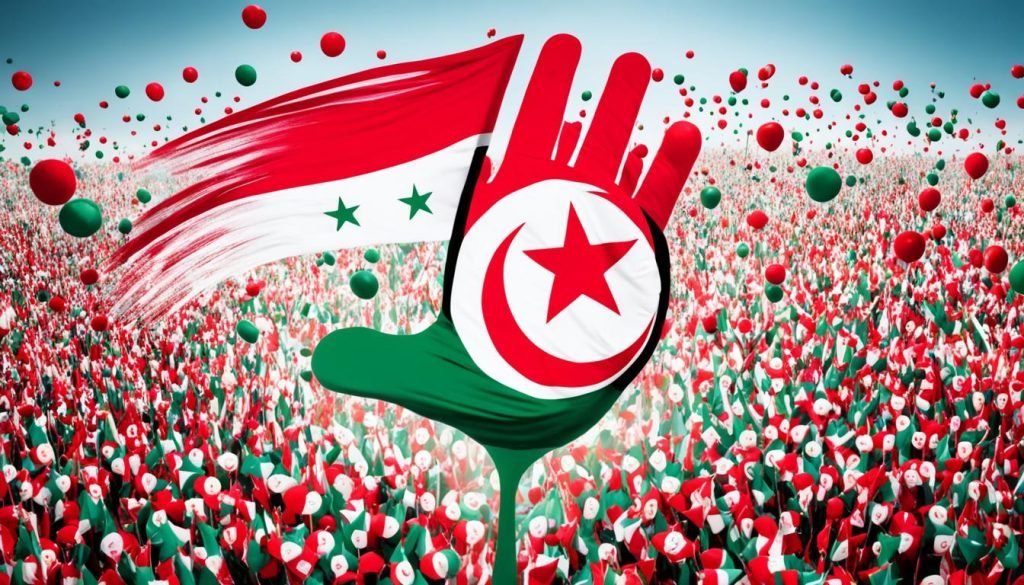
Since becoming president, Saied has focused on helping Palestine. Fighting for Palestine was key when he was running for president. He works to gather worldwide support against the occupation.
- The presidency’s rapid response to the conflict
- Consistent foreign policy against normalization
- Active engagement in international forums to support Palestinian rights
Tunisia’s help for Palestine is more than just talk. It shows the country’s strong and long belief in this cause. These beliefs are a big part of Tunisia’s history and its people’s feelings.
Tunisia’s Public Sentiment and Demonstrations of Solidarity with Palestine
In Tunisia, people really care about Palestine. You can see this care in many local protests. The bond between Tunisia and Palestine grows from seeing thousands in Tunisia support them. This shows how connected Tunisians feel to the Palestinian cause.
Grassroots Movements and Civil Society’s Influence
In Tunisia, groups and unions play a big part in backing Palestine. They organize protests and teach people why this support matters. This helps share the feeling that Tunisia and Palestine are linked by history and culture.
National Rallies and Education System’s Contributions to Palestinian Support
Tunisian schools and colleges show solidarity in real ways. They raise Palestine’s flag and play its anthem. It’s their way of teaching kids to connect with Palestine’s story.
By delaying big events for Gaza, Tunisia shows deep support. This shows how caring for Palestine is a big part of Tunisia’s life.
Examining Tunisia’s Legal Framework in Support of the Palestinian Cause
Recent actions in Tunisia show a strong effort to stay away from Israel’s influences. This move highlights Tunisia’s firm support for Palestine. It shows how Tunisia manages its global relations by opposing any form of normal ties with Israel.
Legislative Proposals and Their Impact on NGOs
There are new laws in Tunisia against normalizing ties with Israel. These laws protect Tunisia’s support for Palestine and affect non-government groups (NGOs). Now, Tunisia is focusing more on policies that support Palestine. This may mean stricter rules for NGOs.
Hindrance or Boost: Assessing the Impact of Anti-Normalization Laws on Palestinian Advocacy
Tunisia is clearly committed to helping Palestine through new laws. Yet, these actions start many discussions. These laws are meant to help Palestine. But, they could also limit what NGOs can do and affect diplomacy.
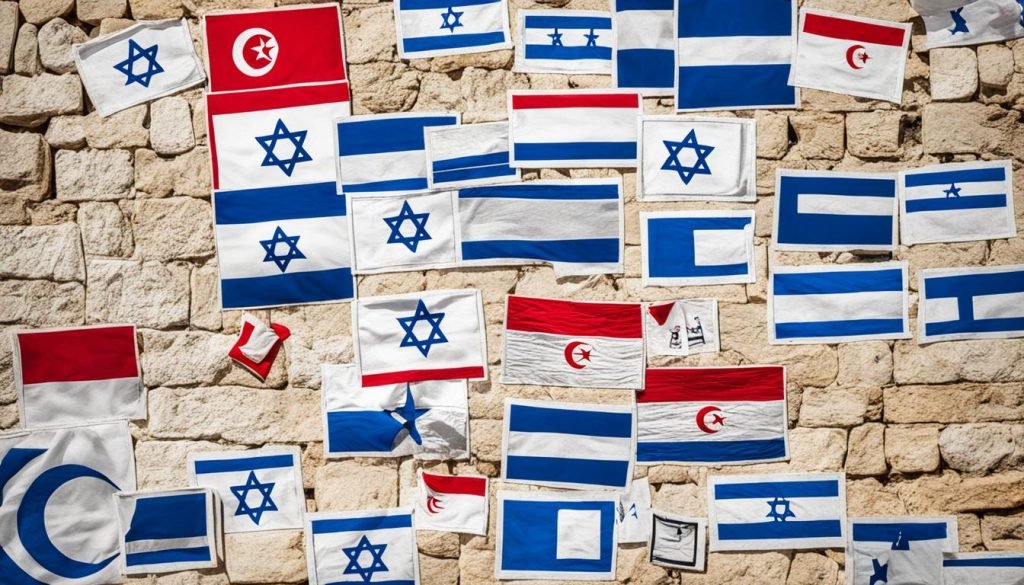
Below is a quick look at new laws against Israel ties and how they might affect advocacy:
| Proposed Law | Objective | Expected Impact on NGOs | Broader Consequences |
|---|---|---|---|
| Criminalization of Israel Normalization | To deter any form of normalization or cooperation with Israeli entities | Possible constraints on foreign funding and partnerships | Strained diplomatic relations with countries supporting Israel |
| Increased Oversight of NGO Operations | Ensure alignment of NGOs with national foreign policy | Enhanced state control could limit advocacy flexibility | Potentially isolated human rights campaigns due to reduced independence |
| Enhanced Penalties for Non-compliance | Dissuade any engagements or interactions with Israeli influences | Risk of legal issues for NGOs not fully compliant with state policies | Could sever collaborations that indirectly benefit Israeli entities |
Tunisia is carefully balancing its global position with supporting Palestine. These new laws show Tunisia’s deep commitment to its own priorities. It’s a strong signal of Tunisia’s ongoing support for the Palestinian cause.
Conclusion
The help from Tunisia for Palestine shines in the world of nations. It shows unwavering friendship and people standing firm together. This support flows from the streets to the leaders, forming a strong bond.
People in Tunisia have stood up for Palestine, catching eyes around the globe. Tunisia keeps holding its ground even when others take new paths with Israel. This shows Tunisia’s deep care for justice and unity.
Tunisia’s voice for Palestine shapes its image far and wide. It leads in North African countries supporting Palestine. Tunisia pushes others to think over their choices, focusing on fairness and freedom.
Diplomatic Advocacy: Tunisia talks big in world meet-ups, standing up for Palestine to choose its own future.
Legislative Measures: Laws are made and followed in Tunisia, supporting Palestine and saying no to normalizing with Israel.
Societal Mobilization: Lots of people in Tunisia show their support. They gather and speak out, spreading hope and friendship.
Tunisia’s help for Palestine is key to who it is. It’s not just a policy but a sign of its values and role in the world.
| Aspect of Support | Description |
|---|---|
| Diplomatic Efforts | Tunisia’s active role in international forums to advocate for Palestinian rights. |
| Legislative Actions | Introduction and enforcement of laws in Tunisia that bolster the Palestinian cause, particularly against normalization with Israel. |
| Public Demonstrations | Large-scale rallies and public gatherings that visibly affirm Tunisia’s solidarity with Palestine. |
| Societal Engagement | The mobilization of civil society, including educational initiatives, cultural events, and media to support Palestine. |
Uncovering the Underlying Dynamics: Tunisia’s Approach to Palestinian Relations
In my research, I found Tunisia’s stance on the Palestinian conflict to be complex. On the streets, the people of Tunisia show strong support for Palestine. This passion is powerful and long-lasting. But sometimes, the government’s actions seem different. They make me wonder if they use the cause for political gain. This mix of public support and government plans shows how Tunisia connects with Palestine.
People have questions about President Kais Saied’s actions. They want his support for Palestine to be real and meaningful. In the world of politics, it’s hard to tell if his promises lead to real help. I’m looking into laws that might limit NGOs helping Palestine. This could hurt Tunisia’s support for civil rights. It shows there might be more going on than we see.
As a journalist, I keep a close watch on Tunisia’s policies and how they deal with other countries, like Tunisia and Israel relations. I’m trying to see if Tunisia really helps Palestine or just talks about it. Do their actions match their words? I’m searching for the truth in Tunisia’s complicated relationship with an ongoing struggle.

